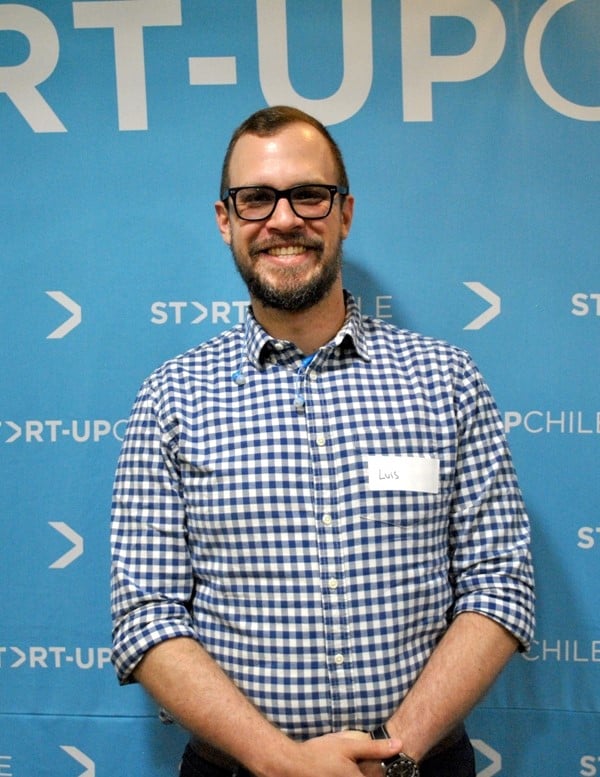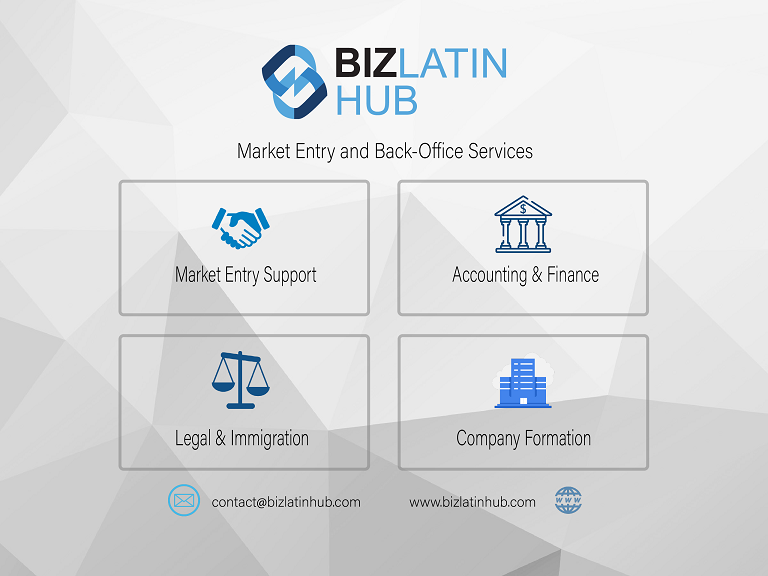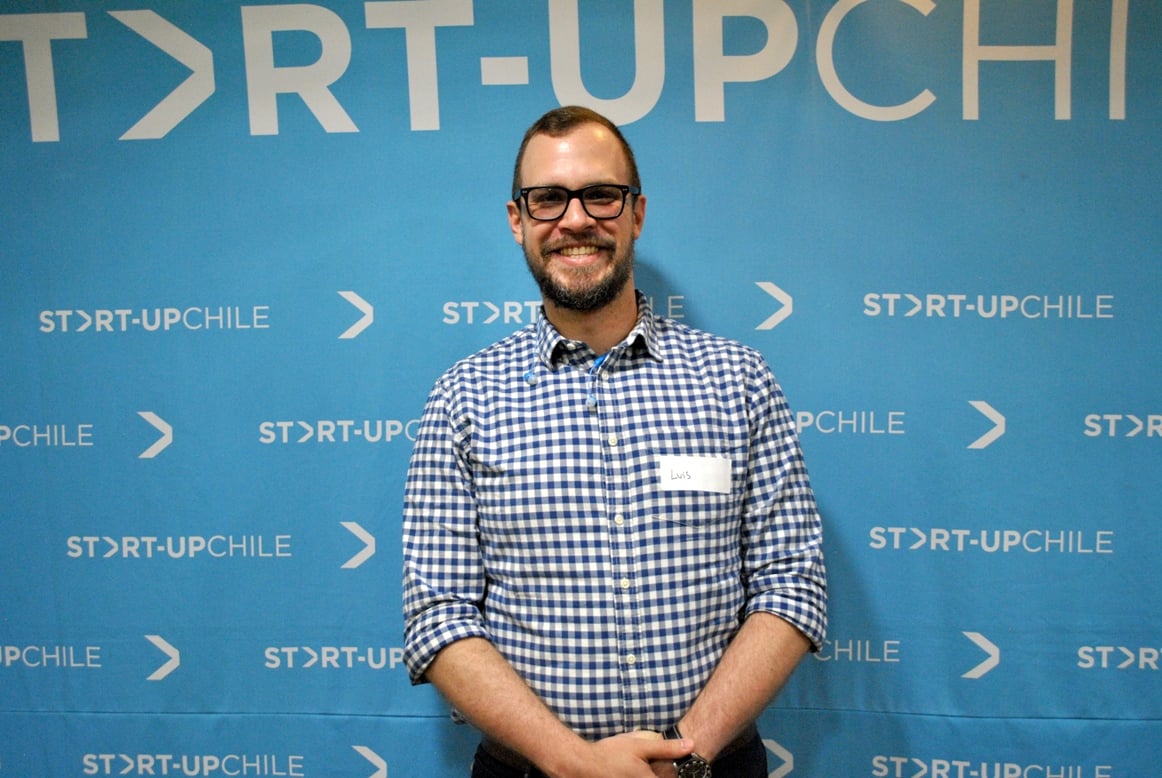Tune in to our latest interview with industry expert Luis Santiago, who discusses digital health and entrepreneurship in Chile and the Dominican Republic.
Biz Latin Hub’s Maja Gaukstern had the great pleasure of connecting with Luis Santiago, CEO of PEGASI, a company specialized in digital health and the smart management of healthcare information. With a solid base in Venezuela, PEGASI is currently expanding into Chile and the Dominican Republic.

Luis spoke with us about the developments of DigiHealth in the region, the advantages of doing business in Chile and the Dominican Republic, and shares tips about being a successful entrepreneur in Latin America.
How does PEGASI change the health sector in Chile, Venezuela and the Dominican Republic?
We help patients, physicians and service providers manage their information in a smart manner, making it accessible, clear and secure for everyone. While doing that, data is aggregated and anonymized for real-time population health monitoring (e.g. endemic and epidemic disease tracking).
With the COVID-19 onset, it finally shows how important it is to have information readily available to report, but in a way that insures patient privacy.
Currently PEGASI is expanding into Chile and the Dominican Republic. What characteristics of those economies did you see as advantageous for PEGASI?
For us, Chile is a great market to expand to, as it is small, very aware of the advantages of our type of technology and supports an amazing start-up ecosystem. It is the perfect scenario from which to catapult PEGASI to the rest of Latin America.
On the other side, Dominican Republic is an even smaller market, and might lack the support of a strong ecosystem, but it has a lot less competition and a greater opportunity for niche building.
When did PEGASI expand into Chile and what was your biggest challenge in doing so?
We expanded to Chile when we got admitted to Start-Up Chile, back in February 2019.
Our biggest challenge was getting heard in a market that’s traditionally run by very large actors, accustomed to very long sales cycles unsustainable for start-ups. We finally got heard thanks to opportunities opened by corporates and the innovation ecosystem, and now we’re just taking it day by day.
“Leading a start-up is based on technical knowledge, sure, but it’s more about interpersonal abilities, leadership and clear communications to assure synergy between founders, employees, clients and investors”.
Luis Santiago discussing how he combines his educational background in social communications investigation with his work at PEGASI.
What developments do you expect to see in the digital health sector in these countries and the wider region?

The main driver of change is the massive adoption of teleconsultation tools, as to prevent infections while maintaining the medical act. This paves the way for the type of technology we build and speed up clinicians’ adoption of DigiHealth tools, which will in turn close the digital gap for them and make it less of an uncertainty to operate their practices and institutions on a paperless setting.
Talking about leadership and entrepreneurial spirit, what are your tips for young entrepreneurs to manage their start-up?
I think being an entrepreneur is a lot like surfing: the first step is watching people do it so easily, then going into the sea and getting tossed around by the waves, and then slowly develop your balance. And you can surf forever for the love of sports, but if you want to go pro you’ll need co-surfers Biz (team members), and trainers (mentors), while getting enough money to buy better boards (funding).
There is no going pro without a tough team, a great set of mentors and some funding to fuel your growth.
Could you describe to our readers what the entrepreneurial network in Chile is like?
It’s very cool! You can find like-minded people everywhere, sharing their passion, their experience and giving you access to their contacts network.
Also, corporations are constantly posting innovation opportunities, and accepting entrepreneurs as co-creators.
Finally, you can find the largest base of public funding opportunities for entrepreneurship, and second-largest private equity ecosystem in the region (the first being Mexico).
All in all, it’s a great place to live, grow and thrive as a startup.
Now that you are expanding into the Dominican Republic, how would you rate the Dominican Republic as a destination for entrepreneurs?

Most things entrepreneur-wise are [waiting] to be made here. If you have a solid product, and a solid go-to-market strategy, this is the place to craft a niche for yourself!
What was the biggest barrier of entry for you in the Dominican Republic and how did you overcome it?
As in many Latin American countries, contacts and references are mandatory. Before setting up shop in the country, you have to at least be able to cite someone local in your clients list to get people to listen to you.
There are some clients you might even want to give your products or services for free to, in order to get their recommendation.
What was one valuable lesson you have learned while expanding your business to Chile and the Dominican Republic?
Sell, sell, sell. Always be selling. There is nothing more terrible than opportunities lost to fear of not being able to deliver.
If you have a great team, don’t be afraid to sell, but also don’t be afraid to ask for a few moments while you consult with your team if what’s being asked of you is viable to make.
As a Venezuelan, did you come across any cultural problems while expanding into Chile or the Dominican Republic?
The only one I can think of is how different connotations are for certain words in different countries. What is the name of a fruit in one country can be an insult in other or be completely unknown in a third one. Always ask for a cursory review of bad words in each country you arrive to!
Do you see any cultural differences between these countries that foreign entrepreneurs might have problems with?
Most of our countries are completely Spanish-speaking. Sure, accelerators, incubators and many other structures can be multilingual, but going out to the market is a local language experience.
What advice would you give to foreign entrepreneurs who want to enter the market efficiently?
Don’t expect to be fully understood if you’re speaking just in English – I can assure you, you will get back your investment in Spanish lessons. And take some dance lessons in the meantime – they will make your stay much more fun!
What does your business venture in Latin America look like?
Latin America is an exciting region to start your business venture in. Chile offers a dynamic economy and an attractive business environment. The Dominican Republic offers many benefits of doing business, such as a favourable geographical location and trade agreements with North America and the EU.
Biz Latin Hub is a market leader in providing market entry and back-office services for businesses and entrepreneurs in Chile and the Dominican Republic. Our multilingual expert team of expatriates and locals can assist you in every step of your market entry to the region.
Find out more about our vast range of services, which include legal and accounting support, hiring and PEO services, and more.
Get in touch with us and for personalized assistance and advice on how to develop your business in Latin America.
Learn more about our team of expert authors.






